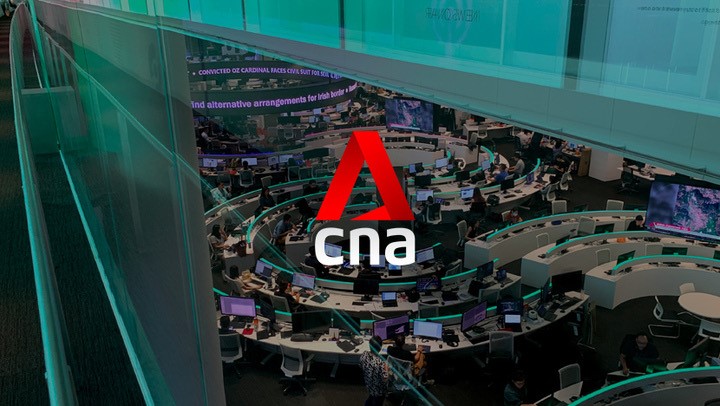PARIS: Heavily-armed men shouting “Allahu Akbar” stormed the Paris headquarters of a satirical weekly on Wednesday (Jan 7), killing 12 people in cold blood in the worst attack in France in decades.
The assault on Charlie Hebdo headquarters in a quiet Paris neighbourhood sparked a massive manhunt as the gunmen managed to escape, executing a wounded police officer as they fled. The men remained on the run in the early evening, with few clues on their whereabouts and parts of the French capital in lockdown.
French Interior Minister Bernard Cazeneuve said security forces were hunting for three gunmen after the noon-time attack on the weekly. French police said they have identified three suspects who were allegedly behind the attack.
Two of the suspects are believed to be brothers – Said Kouachi and Cherif Kouachi – both in their thirties. The third suspect is named as Hamyd Mourad, who is 18 years old. Reports said the trio are linked to a Yemeni terrorist network.

Victims included four prominent cartoonists, including the chief editor, who had been holding a morning meeting when the assailants armed with Kalashnikovs burst in and opened fire, officials said.
President Francois Hollande immediately rushed to the scene of what he called “an act of exceptional barbarism” and “undoubtedly a terrorist attack.”
Amateur video shot after the bloodbath showed two men masked and dressed head-to-toe in black military style running toward a wounded policeman as he lay on the pavement. The attacker says “you wanted to kill me?” before shooting the officer in the head execution style. The gunmen then climb into their getaway vehicle and drive off.
Large numbers of police and ambulances rushed to the scene, where shocked residents spilled into the streets. Reporters saw bullet-riddled windows and people being carried out on stretchers. Two police were confirmed among the dead and four people were critically injured.
The attack took place at a time of heightened fears in France and other European capitals over fallout from the wars in Iraq and Syria, where hundreds of European citizens have gone to fight alongside the radical Islamic State group. In a sign of such tensions, a media group’s office in Madrid was evacuated later in the day after a suspicious package was sent there.
THESE GUYS WERE SERIOUS
One man, who witnessed the attack, described a scene like “in a movie.” “I saw them leaving and shooting. They were wearing masks. These guys were serious,” said the man who declined to give his name. “At first I thought it was special forces chasing drug traffickers or something.”
An employee at a nearby daycare centre said he was walking with children when panic erupted. “People leaned out of the window and yelled at me to get off the pavement,” he said. “We got out of there very fast,” said Jean-Paul Chevalier, 56. “People were panicking. I heard shooting.”
Hollande called for “national unity”, adding that “several terrorist attacks had been foiled in recent weeks”. US President Barack Obama condemned the attack, while British Prime Minister David Cameron called it “sickening.” German Chancellor Angela Merkel said the attack was “despicable” and Russian President Vladimir Putin as well as the Arab League condemned the violence.
Wednesday’s shooting was the worst attack in France in at least four decades. It revived fears of a return to the dark days of the 1980s and 1990s when France was hit by a wave of extremist violence.
The murders in Paris are sickening. We stand with the French people in the fight against terror and defending the freedom of the press.
— David Cameron (@David_Cameron) January 7, 2015
“Our thoughts and prayers are with the victims of this terrorist attack and the people of France” —President Obama pic.twitter.com/ZzVOyGNzfK
— The White House (@WhiteHouse) January 7, 2015
In 1995, a bomb in a commuter train blamed on Algerian extremists exploded at the Saint Michel metro station in Paris, killing eight and wounding 119. Al-Qaeda inspired gunman Mohamed Merah killed seven people in and around the southern city of Toulouse in 2012. His victims included three French soldiers and four Jews – three children and a rabbi.

DEATH THREATS
The satirical newspaper attack on Wednesday gained notoriety in February 2006 when it reprinted cartoons of the Prophet Mohammed that had originally appeared in Danish daily Jyllands-Posten, causing fury across the Muslim world. Its offices were fire-bombed in November 2011 when it published a cartoon of Mohammed under the title “Sharia Hebdo”.
Despite being taken to court under anti-racism laws, the weekly continued to publish controversial cartoons of the Muslim prophet. In September 2012, Charlie Hebdo published cartoons of a naked Mohammed as violent protests were taking place in several countries over a low-budget film, titled “Innocence of Muslims”, which was made in the United States and insulted the prophet.
Wednesday’s attack began with the gunmen first going to the wrong address at 6 rue Nicolas Appert, where the paper’s archives are located. After realising their mistake they moved a few doors down to the weekly’s headquarters.
Editor-in-chief Stephane Charbonnier, known as Charb and who had lived under police protection after receiving death threats, was among the victims. Others included Jean Cabut, known across France as Cabu; Georges Wolinski; and Bernard Verlhac, better known as Tignous.
The publication’s website went down after the attack before coming back on line with the single image of the words “I am Charlie” which has been trending worldwide on social media. Thousands of people gathered on the large Republique square in Paris holding up banners of the phrase.

The attack took place on the day the latest edition of Charlie Hebdo was published, featuring controversial author French Michel Houellebecq, whose latest book “Soumission”, or “Submission,” imagines a France in the near future that is ruled by an Islamic government.
Source: www.channelnewsasia.com and www.bbc.com







